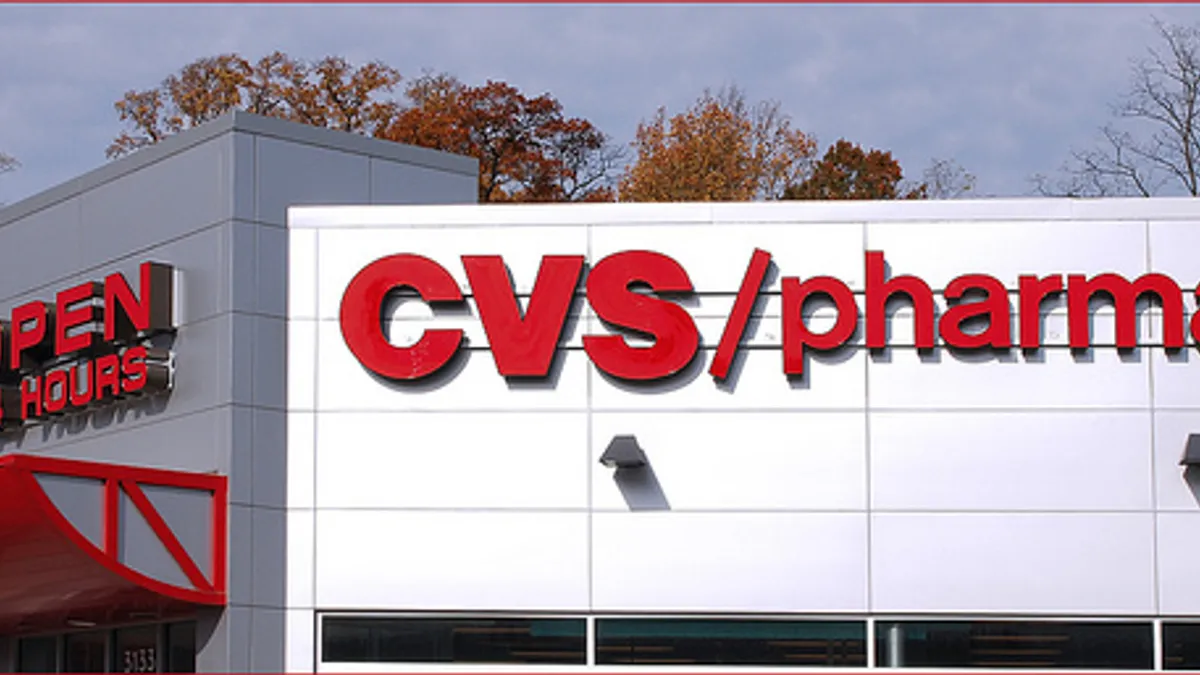Dive Brief:
- CVS Health on Wednesday launched a workplace reopening product for U.S. employers and universities to test employees and students for COVID-19 to help with reopening.
- The Return Ready program includes testing options that vary depending on an employer's physical worksite and risk of exposure. It includes point-of-care diagnostic tests, which give results within 15 minutes, or third-party lab tests, which issue results in a few days. Employees can be tested on site with CVS medical staff or at one of CVS' almost 1,400 drive-thru testing locations.
- A CVS spokesperson declined to comment on the price of the service, telling Healthcare Dive it's "customizable to include testing and other services and thus, may vary." The health conglomerate said it's in conversations with employers across a range of industries, including financial services, sports and media, along with government organizations and first responders, interested in using the program.
Dive Insight:
A flurry of health tech startups, providers, diagnostic giants and more have begun offering products to help businesses looking for ways to resume in-person operations without threatening the health — or productivity — of their workforce.
The products come as each state is in some phase of reopening, although more than half of the country, especially in the South and West, has seen positive cases increase over the past two weeks, and health outcomes aren't improving. On Tuesday, seven states reported the highest number of novel coronavirus hospitalizations since the pandemic began.
FDA has issued a record number of Emergency Use Authorizations for COVID-19 tests in an attempt to start widespread testing and contact tracing efforts, which has helped the U.S. ramp up testing capacity. However, the rapid expansion has raised concerns about accuracy and availability, as the predominant type of COVID-19 test is complex and can only be done in certain labs.
Point-of-care tests, which are not as complex, make up only a small fraction of available testing capacity and aren't as sensitive, according to the Office of the Assistant Secretary for Health.
There's some evidence COVID-19 tests may miss more than one in five cases.
However, that hasn't stopped healthcare companies from stepping in and selling testing capabilities to deep-pocketed employers looking to resume a more normal course of operations and reverse the tanking U.S. economy. More than 45 million Americans have filed for unemployment over the past three months.
But just 6% of employers say they plan to conduct diagnostic tests for employees, according to a survey of more than 1,000 companies by employment law firm Littler, suggesting the market for CVS' offering may be smaller than the health behemoth predicts. Employers are uncertain about the high cost of testing, and it remains unclear to many whether payers or employers will pay for the testing, though Congress has mandated insurers cover medically necessary COVID-19 tests.
Many workplaces instead plan to implement temperature checks and symptom screenings to try and catch in-office virus transmission.
The CVS product includes digital tools to schedule tests and share results, reporting and analytics capabilities and an on-site immunization clinic as well as a contact tracing option through third-party vendors. CVS said it plans to use it for its own employees.
UnitedHealth Group partnered with Microsoft to launch a COVID-19 screening app in May that's available to all U.S. employers for free, while Verily, Alphabet's life sciences arm, began offering a program combining symptom screening, testing services and data analytics earlier this month.
Testing giants LabCorp and Quest are similarly pitching their disease-detection services to employers. LabCorp offers an at-home molecular diagnostic collection kit and fingerstick antibody blood test, as does its rival Quest. Quest, with Delta Air Lines as an early customer, also offers telemedicine and contact tracing.










